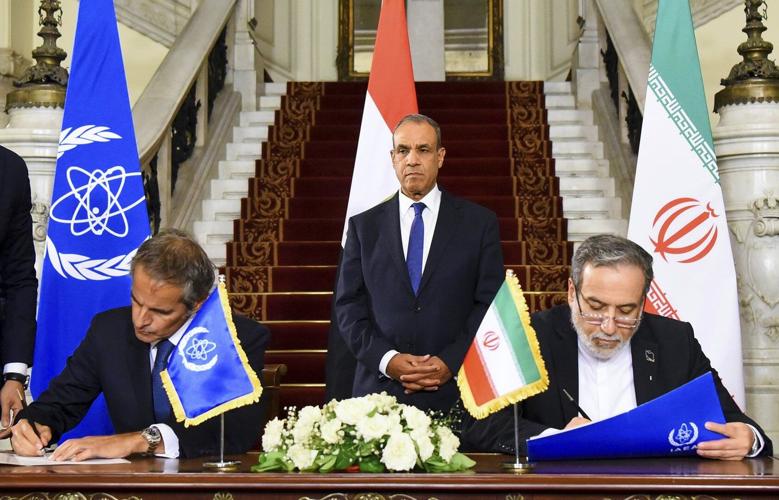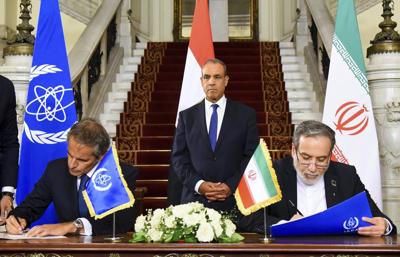VIENNA (AP) ŌĆö An agreement between Tehran and the United Nations’ atomic watchdog will provide the U.N. agency access to all of Iran’s nuclear facilities and require Iran to report on the whereabouts of material that was at sites attacked by Israel earlier this year, the head of the agency said Wednesday.
The Tuesday after a meeting between International Atomic Energy Agency Director General Rafael Grossi, Iranian Foreign Minister Abbas Araghchi and Egyptian Foreign Minister Badr Abdelatty.
Details of the agreement were not immediately released. In an address Wednesday to his agency’s board of governors in Vienna, Grossi said the document ŌĆ£provides for a clear understanding for the procedures of inspection notifications and their implementation.ŌĆØ
The agreement ŌĆ£includes all facilities and installations in Iran and it also contemplates the required reporting on all the attacked facilities including the nuclear material present at those,” Grossi added, noting it will “open the way for the respective inspections and accessŌĆØ without specifying when that would happen.
“The technical nature of this document does not diminish its profound significance. Iran and the agency will now resume cooperation in a respective and comprehensive way. These practical steps, allow me to state the obvious, need to be implemented now,” Grossi told the board of governors.
President Masoud Pezeshkian on July 2 signed a law adopted by Iran’s Parliament suspending all cooperation with the U.N. nuclear watchdog. That followed in June, during which Israel and the U.S. struck Iranian nuclear sites.
IAEA inspectors have been unable to verify since the start of the war, which the U.N. nuclear watchdog has described as ŌĆ£a matter of serious concern.ŌĆØ A confidential report by the Vienna-based IAEA said that as of June 13, Iran had 440.9 kilograms (972 pounds) of uranium enriched up to 60%.
If enriched to 90%, the uranium would be enough to make 10 nuclear weapons, according to an IAEA yardstick, though creating an actual weapon would require other expertise such as adding a detonation device.
The only site inspected by the IAEA since the war has been , which operates with Russian technical assistance. Inspectors watched a fuel replacement procedure at the plant over two days starting Aug. 27.
Araghchi said Tuesday that the agreement addresses his countryŌĆÖs concerns and security challenges and lays out technical requirements for cooperation with the IAEA. But he warned that in the event of ŌĆ£any hostile actŌĆØ against Iran, including the reimposition of U.N. sanctions, Tehran would regard the agreement with the IAEA as terminated.
The meeting came at a sensitive time as France, Germany and the United Kingdom on Aug. 28 began the process of over what they have deemed non-compliance with a 2015 agreement aimed at preventing Iran from developing nuclear weapons.
The process, termed a ŌĆ£snapbackŌĆØ by the diplomats who negotiated it into IranŌĆÖs 2015 nuclear deal with world powers, was designed to be veto-proof at the U.N. and could take effect in a month.
The move set a 30-day clock ticking for the resumption of sanctions unless the West and Iran reach a diplomatic agreement.
European nations have said they would be willing to extend the deadline if Iran resumes direct negotiations with the U.S. over its nuclear program, allows U.N. nuclear inspectors access to its nuclear sites, and accounts for the more than 400 kilograms of highly enriched uranium the U.N. watchdog says it has.
___
The Associated Press receives support for nuclear security coverage from and . The AP is solely responsible for all content.
___
Additional AP coverage of the nuclear landscape:





























